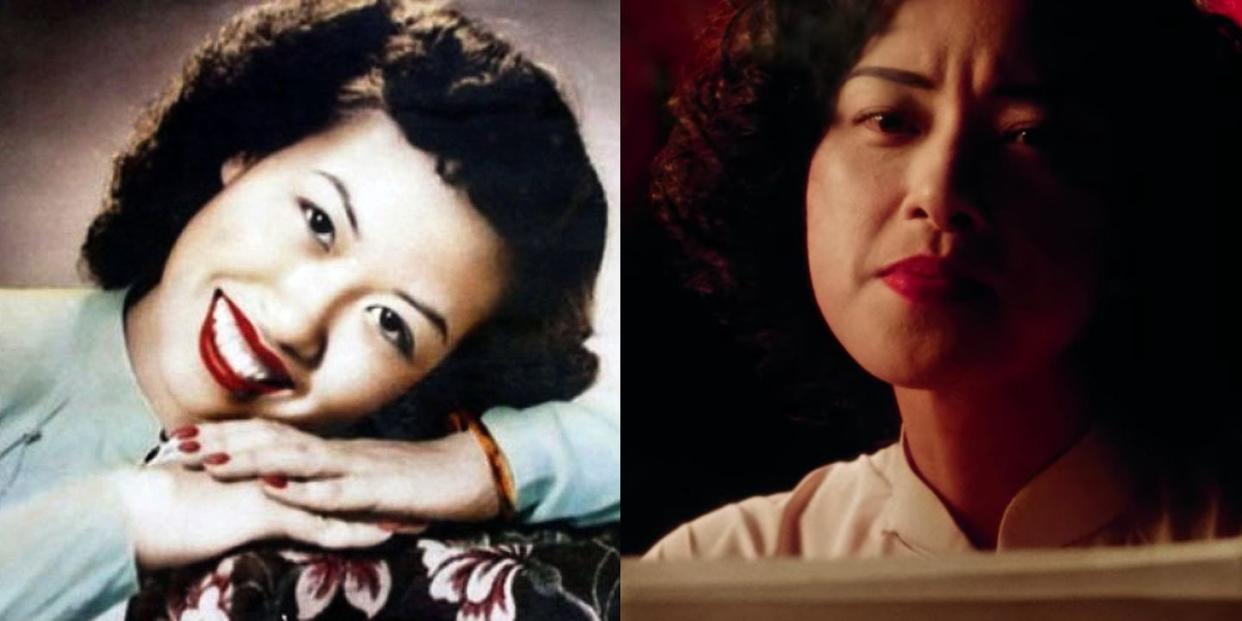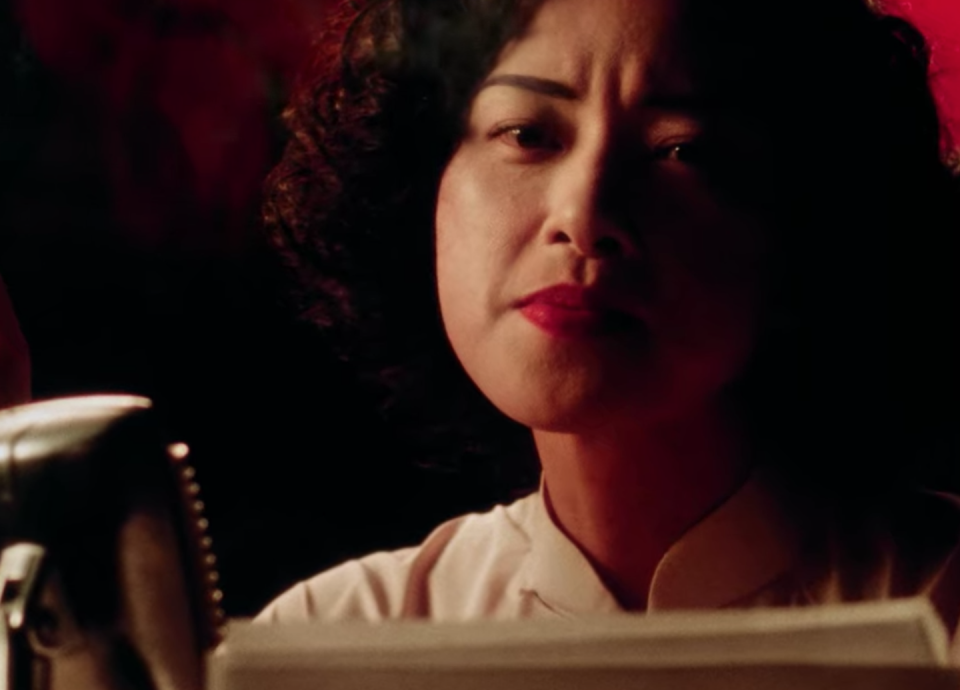Spike Lee's 'Da 5 Bloods' Brings Hanoi Hannah's Haunting, Real Vietnam War Radio Broadcasts to Life

Near the beginning of the second act of Spike Lee's Da 5 Bloods, a flashback to the Vietnam War shows a radio broadcast from Hanoi Hannah (played by Veronica Ngo) delivering the news of Martin Luther King Jr.'s death. Speaking directly to the black troops, she tells them they "are only 11 percent of the U.S. population, but among U.S. troops in Vietnam you are 32 percent." She asks, "Black GI, is it fair to serve more than the white Americans who sent you here?"
It's an incredible scene that cuts between the stark red of Hannah's broadcast room and the anger and sadness on the faces of the titular Bloods listening. And like many of the other historical figures who make appearances in Lee's Netflix movie, Hannah was a real radio broadcaster famous among American troops for delivering haunting North Vietnamese propaganda.
Born Trinh Thi Ngo in Hanoi in 1931, she joined the country's biggest radio station, Voice of Vietnam, in 1955. There, because of her clear English (which she learned from American films like Gone With the Wind), she was given the job of reading the American news broadcasts. When the Vietnam War broke out in 1965, Voice of Vietnam switched to broadcasting propaganda newscasts. Eventually her news broadcasts would air three times a day for 30 minutes every day.
"Defect, GI. It is a very good idea to leave a sinking ship," she said in one news broadcast. "You know you cannot win this war."
And despite their aim to sow discontent within the American army, Hannah's broadcasts were popular among troops. As Don North wrote in The New York Times in 2018:
For bored G.I.s, Hannah’s broadcasts were often rare sources of amusement. A man’s radio was, after his rifle, his most valued possession. Like the rifle butt, the radio was often wrapped in frayed black tape for protection. Troops would laugh over Hannah’s attempts to scare them into defection or suggestions to frag an officer. However, they did wonder if she was as lovely as she sounded, and many considered her the most prominent enemy after Ho Chi Minh.
Like we see in Lee's film, Hannah often directed her broadcasts to the black troops in Vietnam, highlighting racism and inequality. "Isn't it clear that the war makers are gambling with your lives, while pocketing huge profits?" she asked in one news broadcast. She also covered actual U.S. news—like the Detroit riots of 1967—that the American broadcasts would leave out of their own messages to the troops.
“Hannah comes on and she knows what guard unit was called in and what kind of weapons were used,” a soldier from Detroit remembered of her reports of the riots in '67. “That’s when it starts to hit home. We knew what kind of fire power and devastation that kind of weapon can do to people, and now those same weapons were turning on us, you know, our own military is killing our own people. We might as well have been Viet Cong. But Hannah picked up on it and talked about it.”

Even John McCain once marveled at Hannah's talents, having heard her voice while being held as a North Vietnamese prisoner of war for more than five years.
“I heard her every day,” McCain told the New York Times in 2000. “She’s a marvelous entertainer. I’m surprised she didn’t get to Hollywood.”
What Lee's movie does best is highlight the stories of black soldiers in Vietnam that are largely erased from American cinema and history. And the scene with Hannah's broadcast provides a clear depiction of the real racial tension among black and white troops during the war. Her statistics about black troops in Vietnam are mostly accurate. As The New York Times wrote in a survey on racism in Vietnam in 2017:
African-Americans represented approximately 11 percent of the civilian population. Yet in 1967, they represented 16.3 percent of all draftees and 23 percent of all combat troops in Vietnam. In 1965, African-Americans accounted for nearly 25 percent of all combat deaths in Vietnam. By 1967 this percentage had dropped considerably, to 12.7, but the perception that blacks were more likely to be drafted and killed remained widespread.
And it's true that the assassination of Martin Luther King Jr. did cause widespread racial tension and full-on riots among troops in Vietnam:
In May 1968, the journalist Donald Mosby traveled to Vietnam, where he spoke to a number of black soldiers about King’s assassination. He reported that many soldiers “had no intention of allowing things to stay the way they were when Dr. King was murdered.” Some soldiers had responded by embracing the black power movement. Others formed organizations like the Minority Servicemen’s Association, the Concerned Veterans Association, Black Brothers United, the Zulu 1200s, De Mau Mau and the Black Liberation Front of the Armed Forces, ostensibly to represent the collective interests of African-American soldiers but also to protect themselves.
After the war, Hanoi Hannah moved to Ho Chi Minh City, where she lived with her husband and worked in television until her retirement about a decade later. Her son moved to the U.S. and Hannah said she never joined the Vietnamese Communist Party as her anger she felt for Americans faded.
"Our program served a cause, and we believed in that cause, so we continued to broadcast," she told C-Span in 1992. "We know that certainly that if not all of the GIs some of the GIs listened, so we continued the work."
In 2016 the Voice of Vietnam announced the news that she died at the age of 87.
Her scene in Da 5 Bloods offers a perspective of the war that's often missed in American culture and history books. It's reminiscent of the opening scene of the second episode of HBO's Watchmen, which showed real German propaganda directed at black American troops during WWI. And on many levels it highlights the hypocrisy and racism in American history, cinema, and patriotism.
You Might Also Like

